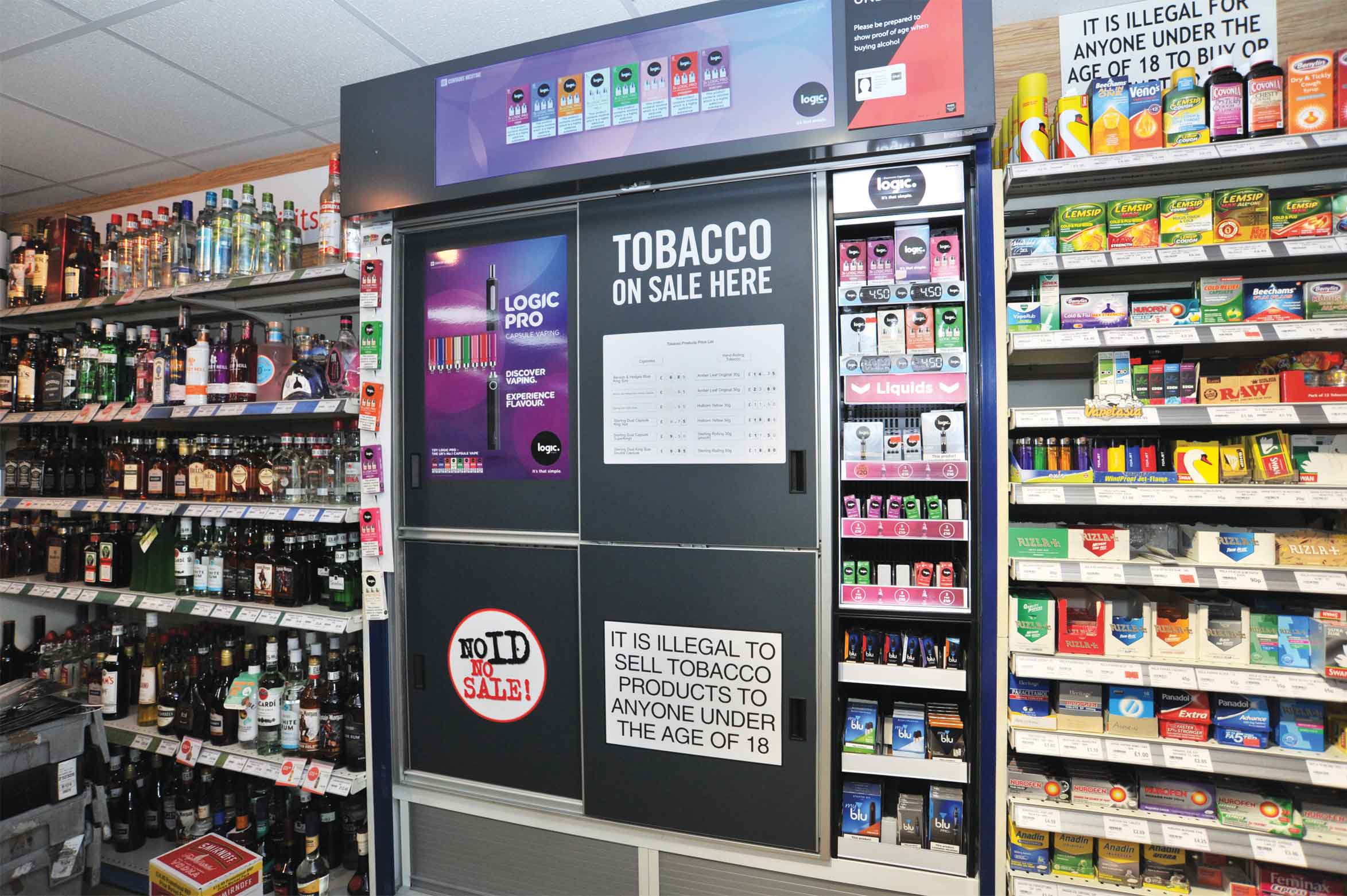Mandatory tobacco licences for shops, increased duty and more promotion of vaping are among the recommendations made by an independent review to help stamp out smoking.
Published last week, the Khan Review made a number of suggestions to the government on how it can achieve its ambitions of a ‘smokefree England’ by 2030. Although the government said it would examine the review by author Javed Khan OBE, there are some recommendations that would have an impact on convenience stores.
Tobacco licences
One major suggestion in the Khan Review was a mandatory tobacco licence for convenience stores. Khan said: “Currently, anyone and any enterprise can sell tobacco. Retailers need a licence to sell alcohol, but not cigarettes. This can mean shops that sell to underage children, or stocking illicit tobacco, can go unnoticed. Unfortunately, it is clear that trading standards and HMRC lack the capacity to effectively tackle the problem.
“A licensing scheme is not just a measure to protect young people. It protects the honest small businesses up and down the country who sell only tax-paid products to adults, but are undercut every day by an illicit trade run by criminal gangs who sell smuggled tobacco to anybody who wants it.”
Government review of weights and measures branded a ‘needless exercise’
The recommendation was welcomed by independent retailers. Sam Coldbeck, of Premier Wharfedale in Hull, told Better Retailing: “A tobacco licence is potentially a good way of reducing illicit tobacco and rogue traders. However, the effectiveness needs to be examined. People have to be cautious. Who’s going to pay for it, who’s going to follow it up and how will it be actioned? For example, illicit tobacco is sold in pubs, restaurants and fish & chip shops. These aren’t convenience stores and the government needs to examine how to clamp down on these businesses.”
In Scotland, convenience stores have been required to have a tobacco licence since 2011. Commenting on the impact, multi-site retailer Shahid Ali said: “I don’t know if it’s had an effect. No customer asks if we’re registered and it’s only the enforcement officer who cares about it. Getting on the register is literally a two-second job. You just go onto a website and it’s job done.”
Duty increase
Retailers also criticised the review’s suggestion that tobacco duty should be increased by 30%, arguing it would encourage customers to go to more illicit traders. If the duty increase was enforced, it could mean the RRP (Booker) for Lambert & Butler Silver would rise from £11.20 to £14.56, while Marlboro Gold Superking would increase from £12.65 to £16.45.
Age increase
Khan also recommended that the legal age of sale for tobacco should be increased by one year, each year, until nobody can purchase cigarettes. However, this was criticised by retailers and trade bodies. Blackburn retailer Suleman Khonat said: “It’s nonsense. There are too many laws as it is, and it’s going to be even more difficult for staff to identify a customer’s age. There’s no need because as far as I know the number of people smoking is not increasing. The government should put the money into education, not legislation.”
HFSS plans go ahead in supermarkets
ACS chief executive James Lowman added: “Increasing the legal age of sale by one year every year would disrupt the very effective measures put in place to enforce an age restriction at 18, which applies not just for tobacco, but to many of the products local shops sell. We need to look at how this would work in practice, but it looks like it would be operationally very challenging for small shops.”
Trading standards
Local trading standards officers have often been criticised by retailers for an inconsistent approach to clamping down on rogue traders. However, Khan suggested giving local authorities more power through £15m of added funding per year.
Experts slam new business rates proposal
“The government should give trading standards the power to close down retailers known to be selling illicit tobacco,” he said. “Deterrents need to be strong, swift and sure. The legitimate traders and criminals alike must know that offenders will be found, and the penalty will be effective. That is what really stops illicit tobacco traders, suppliers and retailers.”
Other proposals
Khan also suggested that vaping should be used as a tool to help people quit smoking, with investment in a mass media campaign to help dispel myths around the category. He also said supermarkets should be banned from selling tobacco in store and online, and suggested changes to the design of packaging and cigarettes themselves to reduce their appeal.



Comments
This article doesn't have any comments yet, be the first!